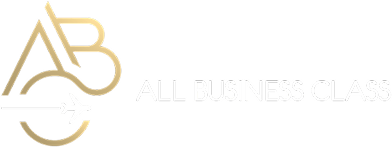Are you ready to take your career to new heights? Look no further than business travel. It’s not just about hopping on a plane or train – it’s a game-changer for professionals like you. Imagine the possibilities: expanding networks, building relationships, gaining industry insights firsthand. Business travel is more than just a trip; it’s an opportunity for growth and success.
Think about it: when was the last time you had the chance to connect with like-minded individuals from different corners of the world? Business trips open doors to collaborations, partnerships, and invaluable connections that can propel your career forward. Whether it’s attending conferences or meeting clients face-to-face, these experiences are essential for staying ahead in today’s competitive landscape.
Business travel isn’t limited to big corporations either. Small businesses can also reap the rewards of venturing beyond their comfort zones. So, pack your bags and get ready for work purposes that go beyond your office walls. Embrace foreign travel, engage in business activities, and witness how these experiences transform both you and your business.
In a nutshell, business travel is no longer just about bus tickets or personal purposes; it’s an indispensable tool for professional growth and success. So why wait? Let’s explore this exciting world together!
A Local’s Guide to Business Travel from Walnut Creek to Dublin’s Hotspots
Uncovering the must-visit attractions and hidden gems in Dublin for business travelers.
- Explore the vibrant Temple Bar district, known for its lively pubs, live music, and bustling atmosphere.
- Take a stroll along the historic streets of Trinity College and visit the famous Book of Kells exhibition.
- Immerse yourself in Irish culture at the Guinness Storehouse, where you can learn about the brewing process and enjoy panoramic views of the city from the Gravity Bar.
Providing insider tips on navigating transportation options from Walnut Creek to Dublin’s hotspots.
- Start your journey by taking a direct flight from Oakland International Airport to Dublin Airport.
- Upon arrival, opt for convenient transportation options such as taxis or ride-sharing services like Uber or Lyft.
- Public transportation in Dublin is efficient and reliable, with buses and trams connecting various parts of the city.
- Consider renting a car if you prefer more flexibility during your stay.
Recommending local restaurants, cafes, and entertainment venues suitable for business meetings or downtime.
- For a sophisticated dining experience, head to Chapter One or L’Ecrivain, renowned Michelin-starred restaurants offering exquisite cuisine.
- If you’re looking for a casual meal with colleagues or clients, try The Winding Stair or Fallon & Byrne for delicious Irish fare in relaxed settings.
- Need a place to unwind after meetings? Check out The Palace Bar or The Temple Bar Pub for traditional Irish music sessions and a pint of Guinness.
From exploring iconic landmarks to savoring authentic cuisine, Dublin offers an array of experiences that seamlessly blend business with leisure. So whether you’re visiting for an entire weekend or just have some free time between meetings, this vibrant city has something to offer everyone within its general area. Make sure to make each day count while enjoying what this American area has in store for you!
Optimizing Tax Deductions for Business Travel
Understanding the tax deductions available for expenses related to business travel is crucial for maximizing tax savings. By highlighting specific deductible items such as transportation, accommodation, meals, and incidentals, taxpayers can take advantage of various opportunities provided by the tax law.
To optimize tax deductions for business travel, proper documentation and recordkeeping are essential. Keeping track of all deductible business travel expenses is key to ensuring accurate reporting on income tax returns. Here are some strategies to consider:
-
Transportation
Deductible travel expenses may include airfare, car expenses (such as fuel and maintenance), and even daily commutes between your tax home and a temporary work location.
-
Lodging Expenses
Expenses incurred for lodging during business trips can also be claimed as deductions. Be sure to keep records of hotel bills or other accommodation costs.
-
Meals and Incidentals
The cost of meals while traveling for business can be partially deducted. Incidental expenses like tips or taxi fares can also be included in this category.
By carefully documenting these expenses throughout the year, taxpayers can effectively maximize their deductions when it comes time to file their income tax return.
Remember that certain rules and limitations apply to each deduction category mentioned above. It’s important to consult with a qualified tax professional or refer directly to IRS guidelines for detailed information regarding eligible deductions.
Tips for Correctly Reporting Business Travel Expenses
Accurately reporting business travel expenses is crucial to maintain financial transparency and ensure compliance. By following these best practices, you can avoid common mistakes and streamline the process of documenting and categorizing your expenses.
Outlining best practices for accurately reporting expenses incurred during business travel:
- Keep track of all receipts: To provide evidence of your business expenses, make sure to collect and retain receipts for every transaction related to your trip.
- Categorize expenses correctly: Properly categorize each expense according to its nature, such as transportation costs, meal expenses, entertainment expenses, or incidental expenses.
- Differentiate necessary from non-essential expenses: Only report necessary expenses that are directly related to your business activities during the trip. Avoid including personal or non-business-related costs.
- Utilize expense management tools: Take advantage of expense management software or apps that simplify the process of recording and organizing your business travel expenses.
Discussing common mistakes to avoid when documenting and categorizing expenses:
- Neglecting to record small transactions: Even minor expenditures can add up over time, so it’s important not to overlook them when documenting your business travel costs.
- Failing to separate personal and business-related expenses: Ensure clear separation between personal and business-related expenditures by keeping separate accounts or credit cards for each purpose.
- Overlooking required documentation: Double-check that you have all the necessary supporting documents, such as invoices or boarding passes, before submitting your expense report.
Providing guidance on utilizing expense management tools or software for streamlined reporting:
- Explore available options: Research different expense management tools or software solutions that align with your specific needs and budget constraints.
- Evaluate features: Consider features like receipt scanning capabilities, automatic categorization, integration with accounting systems, and mobile accessibility when choosing an expense management tool.
- Simplify reimbursement processes: Opt for tools that streamline the reimbursement process, allowing you to submit expense reports efficiently and receive timely reimbursements.
By adhering to these tips, you can ensure accurate reporting of your business travel expenses, reduce errors, and streamline the overall expense management process.
Conclusion: Mastering the Art of Business Travel Deductions
Congratulations on taking the first step towards mastering the art of business travel deductions! By optimizing tax deductions, correctly reporting expenses, and exploring local hotspots, you can make your business trips more rewarding and financially beneficial.
In this guide, we’ve discussed how to maximize your tax benefits by leveraging deductions related to business travel. By keeping track of your expenses and understanding what is eligible for deduction, you can significantly reduce your tax liability. Remember to consult with a tax professional or accountant to ensure compliance with local regulations.
We explored tips for correctly reporting business travel expenses. Accurate reporting is crucial in avoiding any audit issues and maintaining a clean financial record. By following best practices in expense tracking and documentation, you can streamline the process and save time.
Lastly, we highlighted a local’s guide from Walnut Creek to Dublin’s hotspots. Exploring these destinations during your business trips not only adds enjoyment but also allows you to take advantage of potential networking opportunities or gain insights into different markets.
Now that you have learned about optimizing deductions, reporting expenses accurately, and discovering local hotspots during business travel, it’s time to put this knowledge into action! Start implementing these strategies on your next trip and watch as your business travel becomes more efficient and cost-effective.
Remember, every dollar saved through smart deductions can be reinvested back into growing your business or funding future adventures. So go ahead – embrace the art of mastering business travel deductions!
FAQs
-
What types of expenses are generally deductible for business travel?
Common deductible expenses include transportation costs (flights, taxis), accommodation fees (hotels), meals while traveling on business, conference or seminar registration fees, and other necessary expenses directly related to conducting business away from home.
-
Can I deduct personal leisure activities during a business trip?
No, personal leisure activities are not deductible. Only expenses directly related to conducting business or attending work-related events can be considered for deductions.
-
Do I need to keep receipts for all my business travel expenses?
Yes, it is highly recommended to keep receipts and documentation for all your business travel expenses. This will help support your deductions in case of an audit and ensure accurate reporting.
-
Can I deduct the cost of my spouse’s or family member’s travel if they accompany me on a business trip?
Generally, you can only deduct the expenses directly related to your own business activities. The costs associated with accompanying family members are usually considered personal and not deductible.
-
Are there any limits on the amount I can deduct for business travel expenses?
While there are no specific limits on the total amount you can deduct for legitimate business travel expenses, it is important to ensure that your deductions are reasonable and directly related to your business activities. Consult with a tax professional for guidance on specific limitations or restrictions that may apply in your situation.
Are You Ready to Jet Off in Business Class Without Breaking the Bank?
At All Business Class, we’re not just about flights – we’re about crafting unforgettable journeys. Whether you’re dreaming of sinking your toes in the sand of a tropical island, traversing the grandeur of Europe, savoring a culinary odyssey in Asia, or setting sail on an idyllic ocean cruise, we’re here to turn your dream into reality.
But why stop at personal adventures? If your company is gearing up for an international conference or a critical overseas meeting, let us make it seamless for you. We specialize in crafting the finest corporate travel experiences, guaranteeing top-notch business-class flights and unbeatable pricing for your team.
Remember, we’re not just planning a trip but curating your next unforgettable story. To help us tailor the perfect experience for you, we’re eager to understand your unique travel needs and desires. Choose your dream destinations, and we’ll handle the rest!
Whether you prefer an in-person visit to our office, a quick call to us at (800) 769-7857, or simply filling out our online contact form, we are at your disposal. We’re ready to discuss everything from individual to group pricing, itinerary options, and the best deals on business-class flights.
Your dream destination awaits, and at All Business Class, we can’t wait to help you plan and book the journey of a lifetime!

